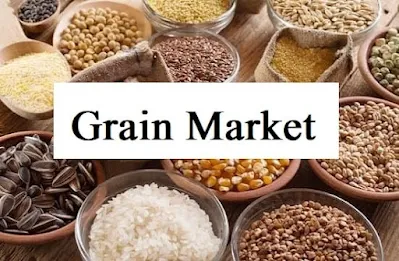The grain market refers to the buying and selling of grains such as wheat, corn, rice, soybeans, and other crops as commodities. These commodities are traded on various exchanges, including the Chicago Board of Trade, the Kansas City Board of Trade, and the Minneapolis Grain Exchange.
The agricultural commodity prices in the market are affected by various factors, such as weather conditions, supply and demand, government policies, and global economic conditions. The grain market is essential for agriculture, grain producers such as farmers, processors, and consumers as it enables them to buy and sell grains at a fair price and manage the risks associated with price fluctuations.
$ads={1}Grain markets are also used by investors who are interested in trading commodity futures contracts as a way to profit from price movements in the market. These futures contracts allow investors to buy or sell a certain quantity of grain at a predetermined price and date, providing a way to manage price risks and speculate on future market movements.
In addition to being a critical component of global food systems, the grain market plays an essential role in international trade. Many countries rely on grain imports to meet their domestic needs, while others export their surpluses to generate revenue and support their economies.
Agricultural commodity prices can be highly volatile, influenced by unpredictable factors such as extreme weather events, geopolitical tensions, and disease outbreaks. As a result, farmers and grain traders often use hedging strategies to manage price risks and protect themselves from sudden price fluctuations.
The grain market is also subject to various regulations, such as food safety and quality standards, trade agreements, and government subsidies. These regulations can have significant impacts on market prices and trade flows.
Overall, the grain market is a complex and dynamic system that plays a crucial role in global food security and trade. Understanding the drivers of market trends and price movements is essential for farmers, traders, policymakers, and consumers alike.

